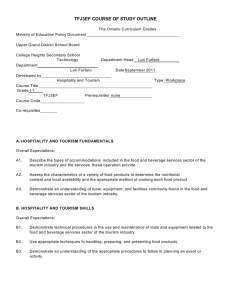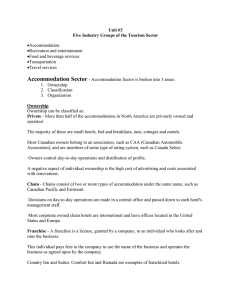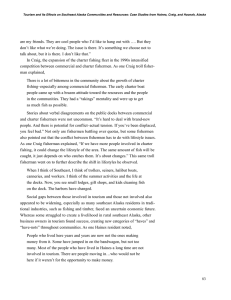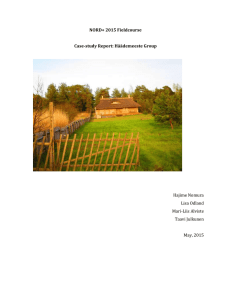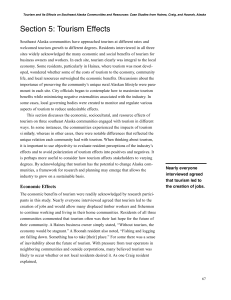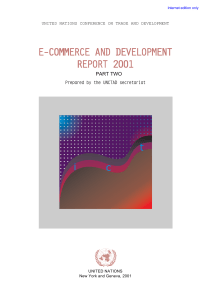THE TOURISM INDUSTRY.ppt
advertisement
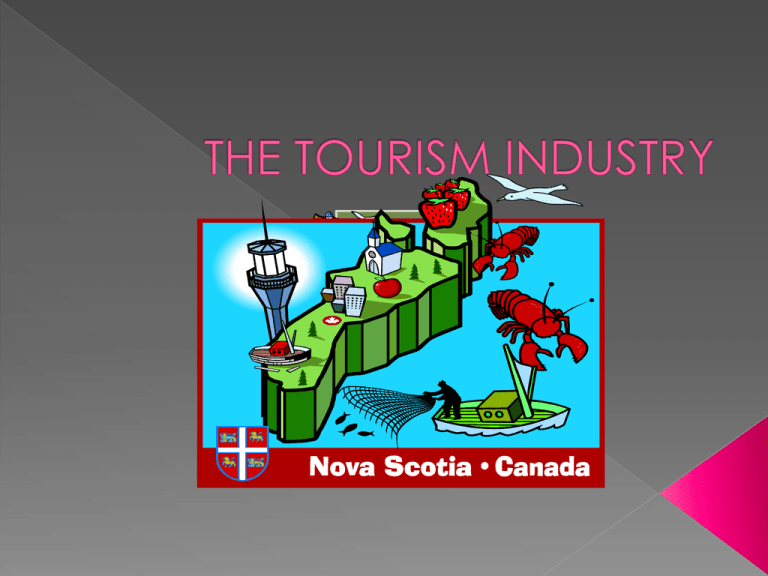
1) accommodation 2) adventure tourism and recreation 3) attractions 4) events and conferences 5) food and beverage 6) tourism services 7) transportation 8) travel trade (sector) The tourism industry is the largest & fastest growing industry in the world Traveller – any person on a trip anywhere, regardless of length or purpose Domestic travel – travel for any purpose & any length of time within 80 km. of home Tourism – set of activities of a person to a place outside his or her usual environment for at least 1 night and less than 12 months Domestic tourism – residents of a country visiting, at least overnight, places farther than 80 km. from their usual environment Inbound tourism – non-residents of a country visiting that country Outbound tourism – residents of a country visiting places outside that country During 1950s & 1960s: Peaceful political climate More $ Passenger jet – faster, cheaper, comfortable TV documentaries Since 1970: Car ownership & good highways Working women – more $ Longer paid vacations Seniors - $ and time Business travel Economic Impact: Major contributor to economy of Canada 1.6 million employed Profits for hundreds of businesses & corporations i.e. hotels & restaurants Cultural Impact Meet different people Increase peace A) Direct: Managerial (hotel) Food & Beverage (chef, bartender) Transportation (pilot, bus driver) Marketing & Sales (shop clerk, travel counsellor) B) Indirect: Provide support services for workers who deal directly with the travelling public i.e. writers & editors for travel publications (Doers Dreamers) Operate independently & often compete, but are part of an overall system Tourists use more than one What affects one can affect the others Components put together and sold as a package i.e. day of sightseeing by chartered bus, with lunch at a popular restaurant Marketing – those activities that direct the flow of goods & services from producer to consumer 4 main Ps: product, price, place, promotion Focus of marketing is on the consumer 4 Ps must satisfy the motivations, needs, & expectations (MNEs) of market target 1) Product: all products & services provided by the sectors i.e. a bus ride across town to an ocean cruise around the world 2) Price: cost of product or service to consumer; quite reasonable today 3) Place: Any marketplace (anywhere buyers & sellers meet to exchange goods & services for $), where the buyer and provider are brought together by a seller i.e. travel agency, ticket counter, telephone line 4) Promotion: The ways in which sellers create consumer interest Sellers advertise on TV, radio, newspapers, magazines, internet May also offer special deals



